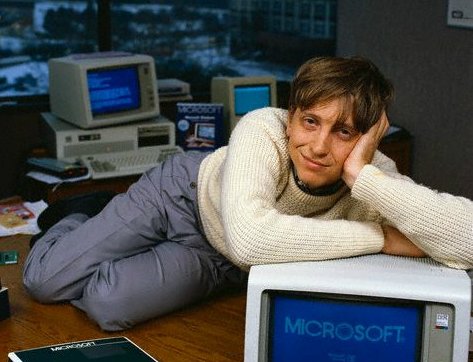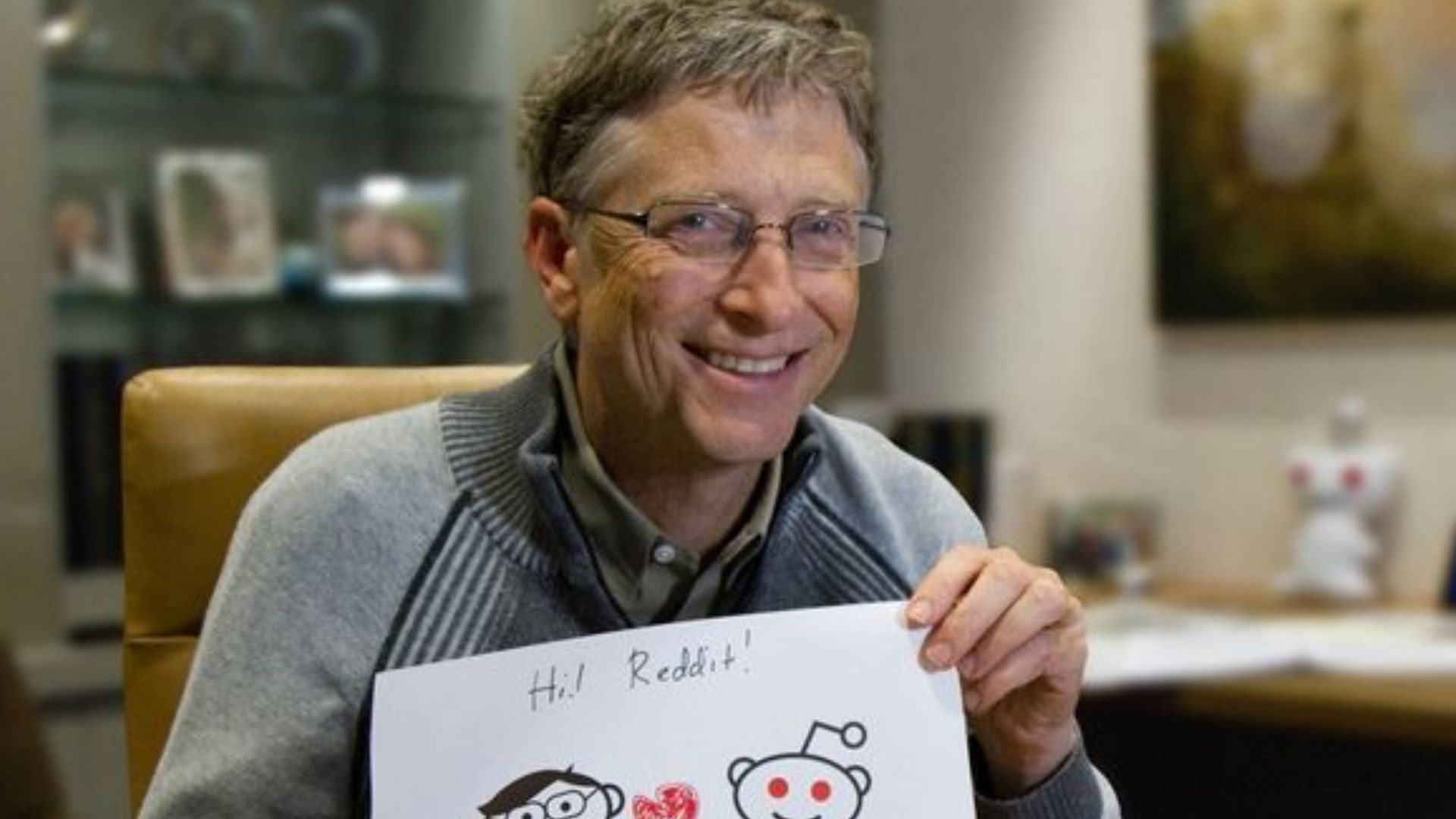Is Microsoft's controversial Windows Recall feature 29-year-old Bill Gates' brainchild? A mid-1980s radio interview suggests it might be
In the 1980s, Bill Gates wanted to make PCs easy to use and fun using AI, or "softer software."

What you need to know
- In a 40-year-old radio interview, Microsoft co-founder Bill Gates talked about his plan to get PCs to every home and the possibility of getting computers to learn.
- Bill Gates indicated that making computers easy to use and fun would help make his dream a reality, including bringing better graphics to PCs.
- Gates envisioned future PCs with learning capabilities that users can leverage to refer back to instead of running repetitive commands.
Could Microsoft co-founder Bill Gates have foreseen the company's current reality 40 years ago? 29-year-old Gates was featured on The Famous Computer Cafe radio show. During the interview, he mentioned his plan to get PCs to every home and the possibility of getting the computer to learn.
Podcaster Kay Savetz unearthed the recordings from the radio show. While speaking to Business Insider, Savetz stated:
"The Interviews on these radio episodes provided a contemporary account of the dawn of the microcomputer revolution — not tainted by nostalgia. They are a great piece of history now, a time capsule."
Gates elaborated more on his plan to get computers to learn by stating:
"After you've used it for a while, then you'll be able to refer back to something you've done previously, so you don't have to repeat those commands."
His comments suspiciously point to Microsoft's controversial recalled WIndows Recall feature. Faulted for its privacy nightmare flaws, Windows Recall is arguably a helpful feature that allows you to quickly retrace your steps and refer to something you were looking at on your computer but forgot.
Here's a brief description of what Windows Recall is from Copilot:
All the latest news, reviews, and guides for Windows and Xbox diehards.
"Windows Recall is a fascinating feature available on Copilot+ PCs running Windows 11. Imagine it as your digital memory lane—a place where your PC captures snapshots of your screen every few seconds. These snapshots are like time-travel Polaroids, preserving everything you've seen and done."
The Microsoft co-founder also imagined an advanced device that could recognize mistakes like human co-workers. This complemented his plan to get PCs to every home. According to the US Census Bureau, only 8.2% of US households had a personal computer in 1984. More importantly, Gates stated the importance of making computers easy to use and fun to achieve this goal.
Bill Gates admitted that it was a "very tough piece of research" to get computers to such an advanced and sophisticated state. At the time, Microsoft referred to the process as "softer software," potentially referring to a smooth and improved user experience.
The radio host asked Gates whether what he was talking about was similar to artificial intelligence. He admitted that he was corrected but indicated that the term was "kind of loaded."
"When people hear artificial intelligence, they think of robots and things that are, you know, going to take over the world and that type of stuff. Softer software refers to the simple steps we can take to make the machine learn and recognize what it is you're trying to do."
Fast forward 40 years into the future, Microsoft technically stacks miles ahead of Bill Gates' predictions and ambitions in the mid-1980s. As you may know, the Redmond giant is arguably one of the key players in the AI landscape. Microsoft briefly became the world's most valuable company, ahead of Apple, with over $3 trillion in market capitalization. Market analysts attributed the company's success to its early investment and adoption of AI across its tech stack.
While making his closing remarks on the topic during the interview, Gates indicated:
"In the extreme case, once the software gets 100% soft, then we will have achieved human-level intelligence. That's a long way away."
Bill Gates lingers in Microsoft's horizon
Though Bill Gates officially left Microsoft to focus on his philanthropic efforts and the Gates Foundation, he's rumored to be intimately involved in Microsoft's internal affairs.
Gates' advice is reportedly treated as gospel at the firm. Additionally, he played a crucial role in landing Microsoft a deal with OpenAI to power its AI advances. While Microsoft CTO Kevin Scott might have brokered Microsoft's partnership with OpenAI in 2018, Bill Gates is said to have been in constant touch with the ChatGPT maker since 2016.
Microsoft CEO Satya Nadella and other top execs at the firm reportedly sought Gates' opinion every time before making a significant change. Long before Microsoft shipped Copilot, Gates shared an internal memo with executives at the firm centered on "AI agents." While vaguely described, the AI agents would help make work easier by reading and summarizing your emails.

Kevin Okemwa is a seasoned tech journalist based in Nairobi, Kenya with lots of experience covering the latest trends and developments in the industry at Windows Central. With a passion for innovation and a keen eye for detail, he has written for leading publications such as OnMSFT, MakeUseOf, and Windows Report, providing insightful analysis and breaking news on everything revolving around the Microsoft ecosystem. While AFK and not busy following the ever-emerging trends in tech, you can find him exploring the world or listening to music.

